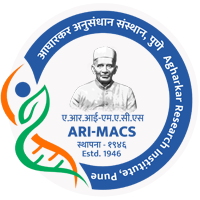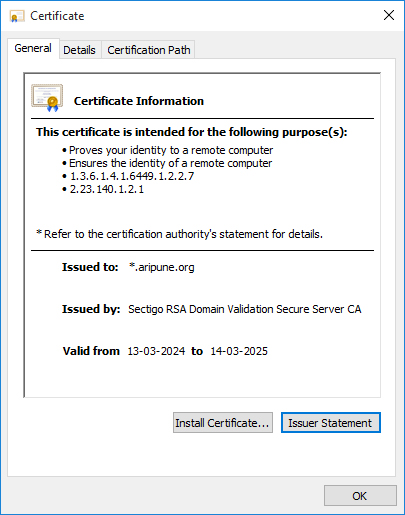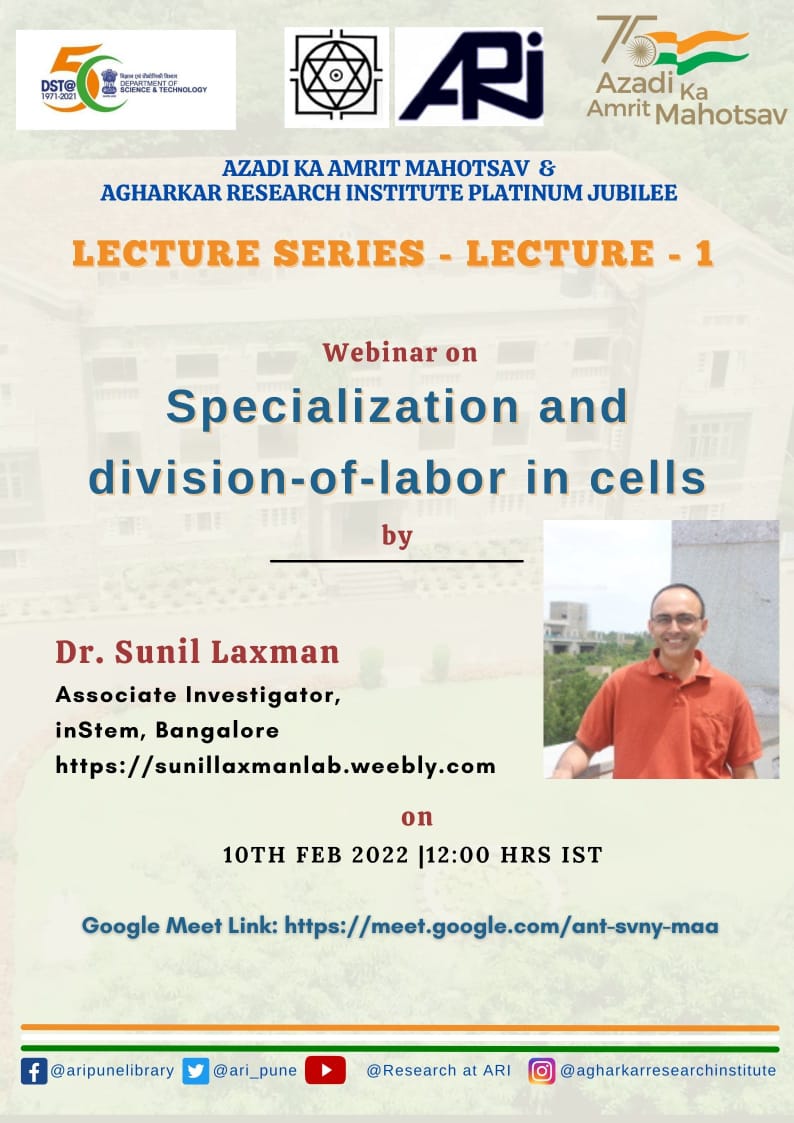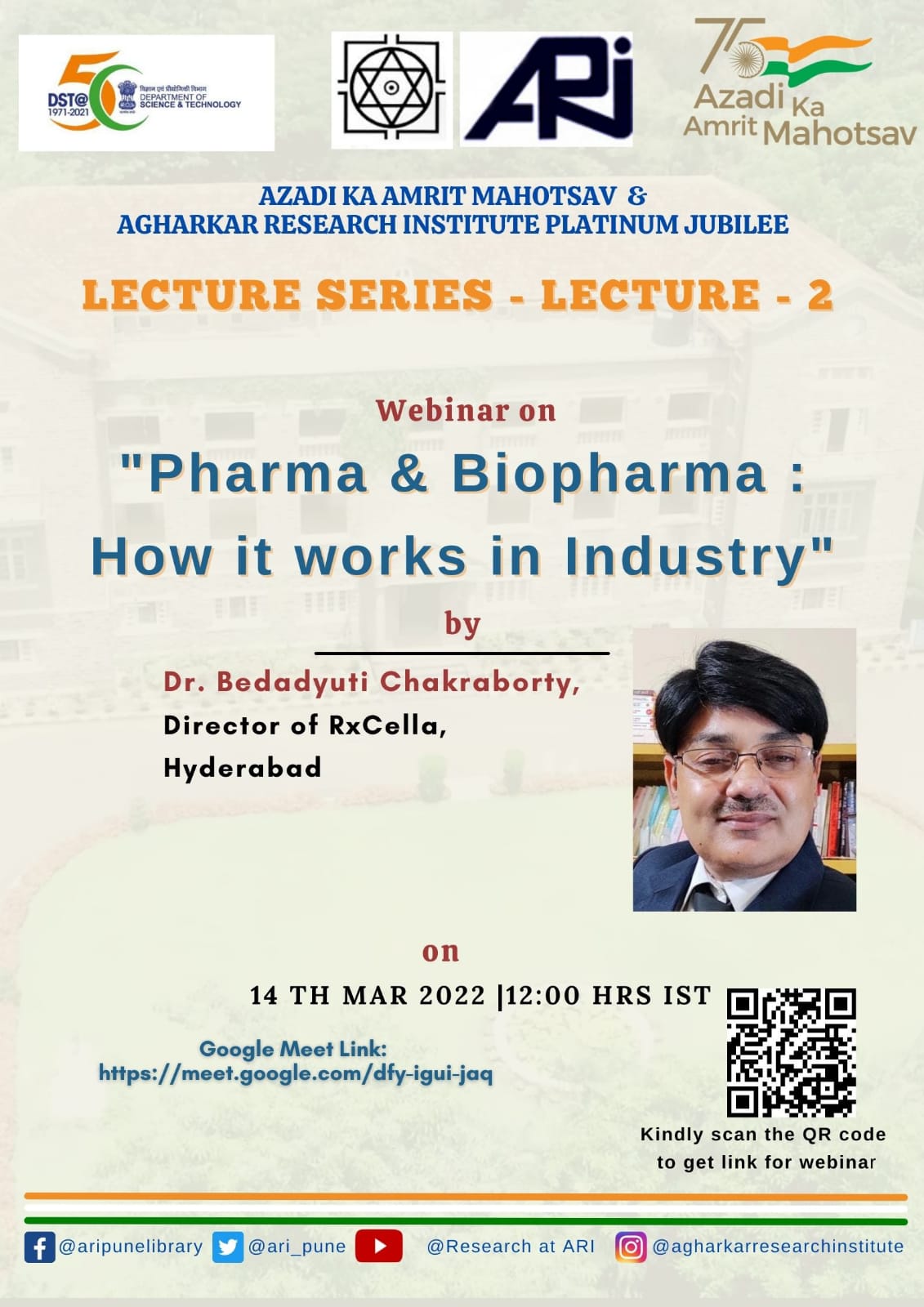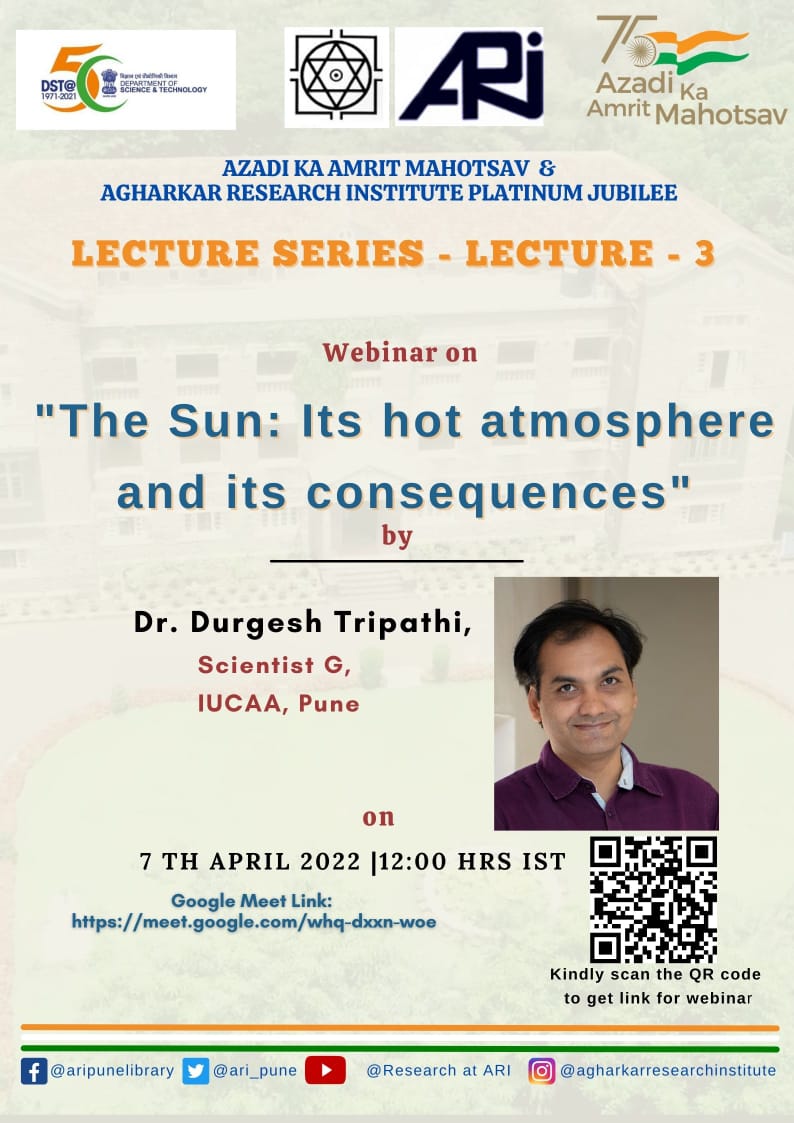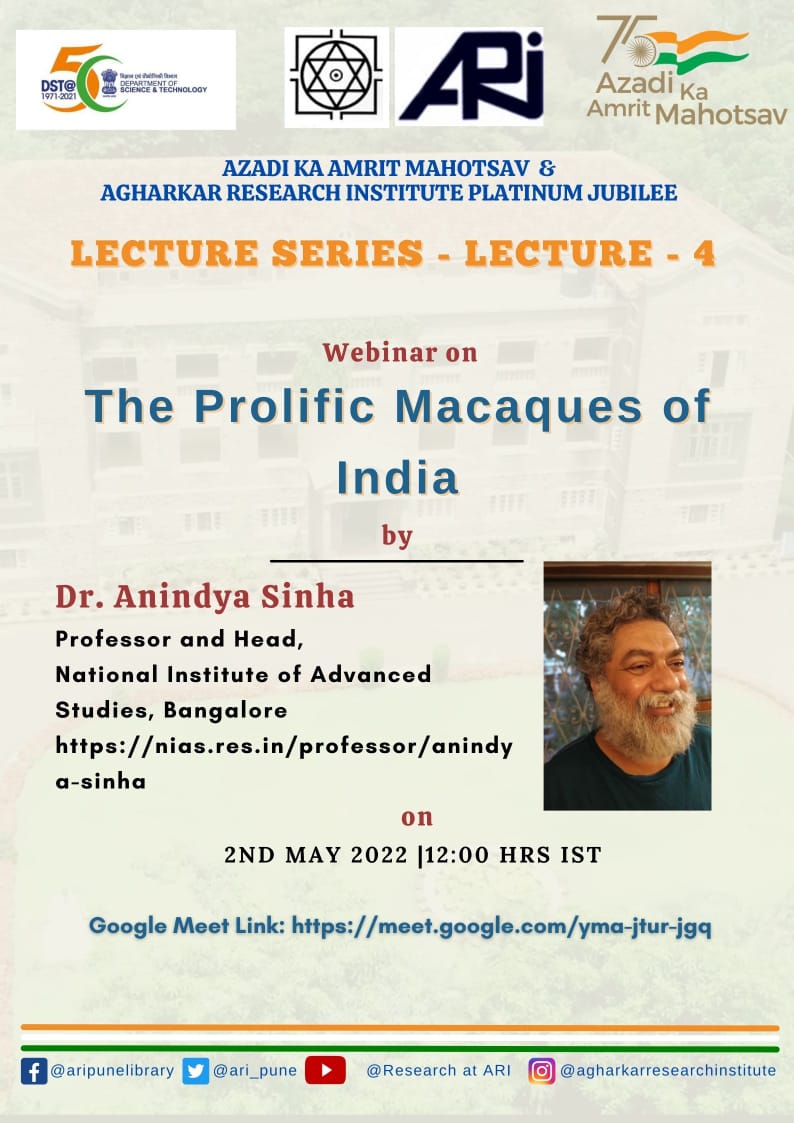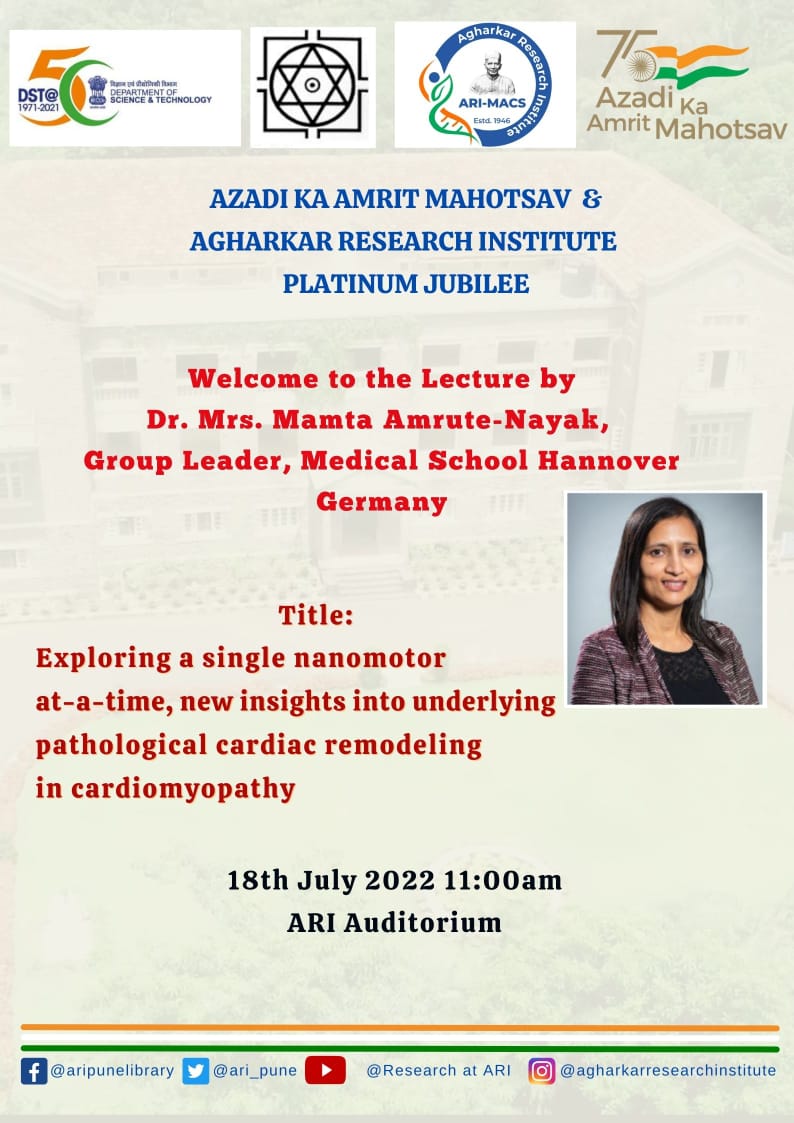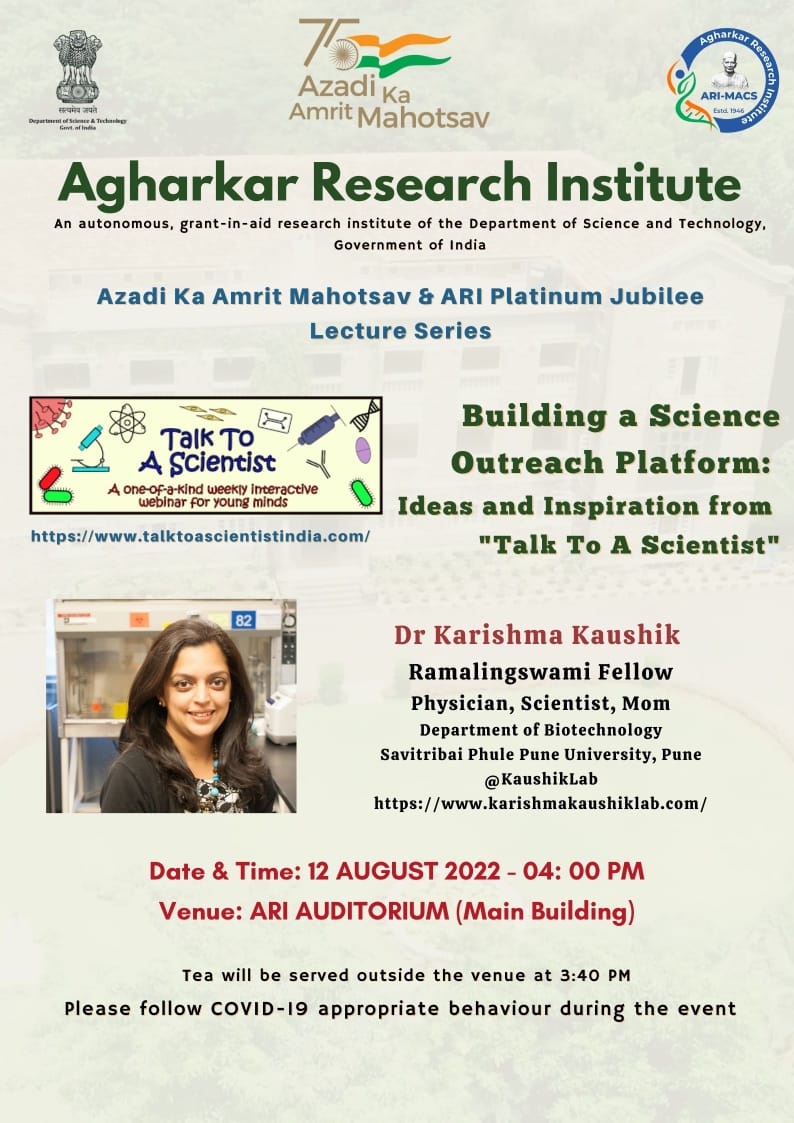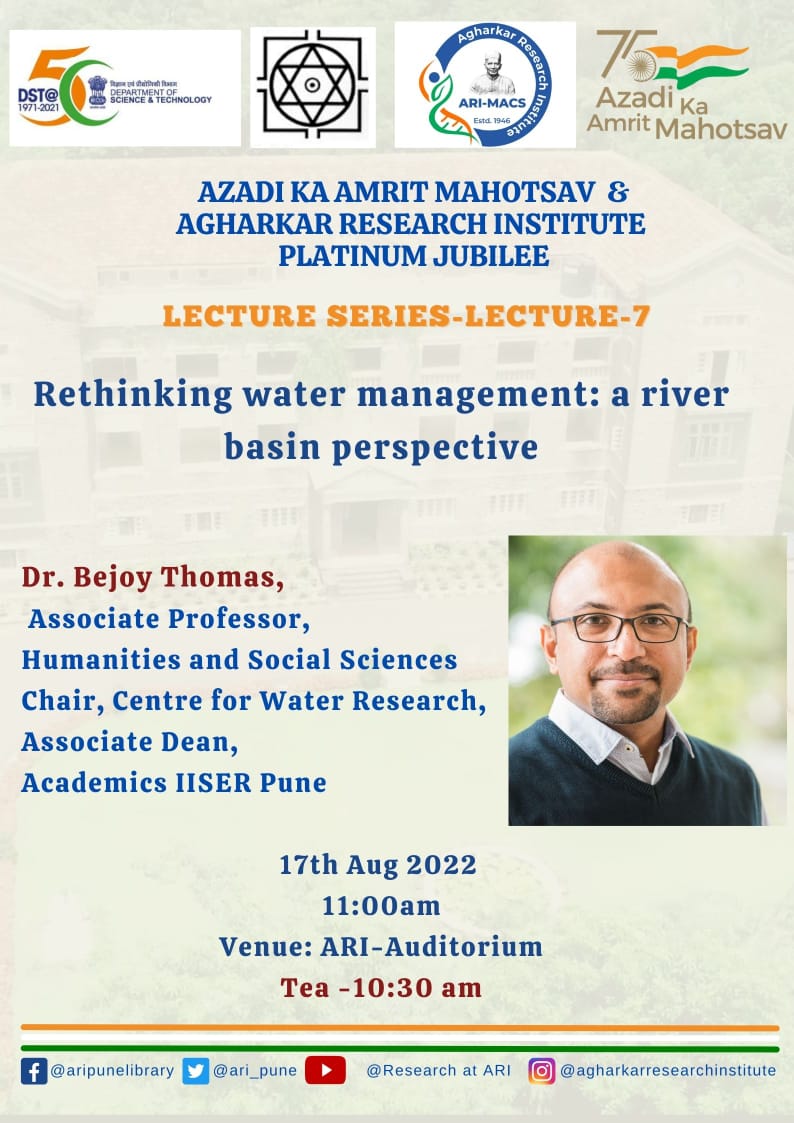MACS
Universities in India were started in 1857. The objectives of University education were three-fold: (i) to broaden the base, and spread liberal education in masses, (ii) to diffuse scientific knowledge, and (iii) to prepare young graduates for technological work for the development and progress of the country in science and basic technology. The Universities did fulfil the purpose and succeeded in teaching and spreading knowledge created and accumulated by others, but they did very little in the first 75 years to create new knowledge themselves, especially in science. Naturally there was a great lag in the application of science to technology, which even now leaves much to be desired, mainly because country still draws some of its technical know-how from others. This became quite apparent in the post-war period, especially when India started its planned development in the post-independence era. This was quite obvious to Dr. M. R. Jayakar, Prof. S. P. Agharkar, Dr. D. R. Gadgil and other educationalists in Poona who were trying to upgrade the teaching in science with a view to promoting research. Technological developments have their roots in fundamental science. Without continuous research in fundamental science, technology would not advance. There was a strong feeling, that Poona with its numerous educational institutions and colleges at various centres in Maharashtra, was severely lacking in research activities in science and technology, although it had made striking advances in humanities, especially in Linguistics, Mathematics, Sanskrit, Archaeology, History and such other subjects. Despite excellent Institutions and a great manufacturing centre like Bombay near at hand, there were little or no efforts made to foster the spirit of scientific research. Some were made only at individual levels and were unorganised. The need, therefore, was felt for carrying out scientific and technical researches in a more organized way during the pre-independence period.
Foundation of the M. A. C. S. and its Research Institute: By this time there was a strong move to have a separate University in Poona with various objectives which included inter alia, research in science. But it was thought better not to wait till the formation of the Poona University, and explore the possibility of starting a Science Institute in Poona. The lead in this matter was taken by the Indian Law Society. A meeting, therefore, was organized at the initiative of Principal J. R. Gharpure of the Law College Poona, on 17th October 1944, under the chairmanship of the Right Hon’ble Dr. M. R. Jayakar in which educationalists, men of science, agriculturists and industrialists interested in promoting higher education and Scientific research, were present. It considered the steps to be taken for developing a nucleus for organizing such a Research Institute for pure and applied science. The meeting appointed a committee comprising Dr. M. R. Jayakar as the Chairman, and Principal J. R. Gharpure, Shri N. C. Kelkar, Dr. R. H. Bhandarkar and Mahamahopadhyaya D. V. Potdar as its members. It was enlarged by co-opting Professor S. P. Agharkar, Prof. S. L. Ajrekar, Prof. P. R. Awati, Dr. P. J. Deoras, Prof. D. L. Dixit, Dr. K. C. Gharpure, Dr. K. V. Joshi, Dr. N.V. Kanitkar, Dr. D. B. Limaye, Prof. G. R. Paranjape, Prof. H. P. Parajnpye, Prof. G. B. Patwardhan, Dr. D. L. Sahasrabuddhe and Prof. N. V. Joshi, who was nominated as the Honorary Secretary of the Committee.
During 1945-46 the Committee met several times, and as a result of their deliberations, it was decided to start a Science Institute under the auspices of Indian Law Society who graciously provided two rent-free big halls in the basement of the Law College building, for conducting research with special emphasis on the requirements of rural areas. At the same time it was decided that such an Institute should be run by an Association of persons interested in this project. Thus came into existence the Maharashtra Association for the Cultivation of Science on 5th October 1946 with the following aims and objectives:-
(a) The promotion of Science including its practical application to problems of National Welfare; (b) Maintaining an Institute or Institutes for scientific research; (c) Establishing a Science Library; (d) Disseminating the knowledge of pure and applied sciences by means of lectures, publications, demonstrations, exhibitions, etc.
Its constitution was duly framed and registered under the Charitable Societies Act on 1-10-1946. Initially a small fund of modest amount was built from private donations and membership subscriptions. Those were the pre-independence days and it was difficult to get financial aid from the Government. Therefore, a group of scientists who decided to organize it, offered to work in a purely honorary capacity without receiving any remuneration. The work of M. A. C. S. was to be administered through a Council and an Executive Committee. The latter managed the affairs of the Association under the general supervision of the Council, and the Director of the Institute, and Honorary Secretaries looked after the day-to-day affairs of the Association and the Research Institute. Prof. S. P. Agharkar was unanimously elected as its first Founder Director in 1946. In fact, he was the most inspiring dynamic personality behind the whole move. The idea of starting a Research Institute in Poona was in his mind for a long time. He was the maker and main organizing hand behind several scientific societies and institutions in Calcutta and elsewhere, and was intimately connected with them. Thereby he had gathered immense experience of running the scientific institutions all over the country, being, the Secretary of the Indian Science Congress Association for several years, and the Secretary of National Institute of Sciences, now Indian Science Academy, for over 10 years. It was in the fitness of things, therefore, that he was selected as the first Founder Director of the M. A. C. S. Research Institute.
He gathered a small group of senior scientists in Poona who were prepared to work without any remuneration in. this new venture. The group included Prof. N. V. Joshi who created a nucleus for researches in Microbiology and Biochemistry, Prof. S. L. Ajrekar organized Mycology & Plant Pathology Dept. and Prof. P. J. Deoras started investigations in Zoology. Prof. Agharkar himself looked after the Botany and Soil- Science Departments. All these honorary workers tried hard to set up and organize departments in their respective subjects, and ran them most economically. Prof. S. P. Agharkar, Prof. J. J. Asana, Dr. V. N. Likhite and others donated their valuable personal collection of books, journals and back volumes of periodicals consisting of very important reference works worth more than 1.5 lacks of rupees. This really served as a nucleus for the Library of the Science Institute. The senior scientists in their turn persuaded other scientists and promising research workers younger to them, and got them to work at the Research Institute. This included Prof. M. N. Kamat, Dr. N. Narayana and Dr. G. B. Decdikar, who is the present Director of this Research Institute. The workers started working at this Institute vigorously and attracted a number of young research workers and students to carry out their research problems, with whatever little facilities they had here.
Recognition by the Poona University and other Scientific Bodies in the country: Towards the end of 1948, Poona University was established and in view of the excellent team of workers and the work they were carrying out at the Research Institute of M. A. C. S., the Poona University recognized it for post-graduate research under Section 35 of the Poona University Act. In 1952, it was further registered under the Bombay Public Trust Act of 1950. The then Government of Bombay included it in the list of recognized research and cultural institutions under the revised rules in the matter by their communication No. RSI 2856/24896 dated 26-4-1956 of the Education Department, Government of Bombay. Several post-graduate students were attracted to it from all over the country and were admitted for researches leading to M. Sc. and Ph. D. degrees of the Poona University in the following subjects:
Botany, Cytogenetics, Plant Breeding, Entomology, Zoology; Mycology, Microbiology, Chemistry, Biochemistry and Agricultural Chemistry.
In 1948, the Poona University, approached the M. A. C. S. for help in organizing the University Department of Botany during its early days. Professors at the M. A. C. S. accordingly used to participate in the lecture scheme for teaching of M. Sc. courses in Botany, Zoology and Geology. The arrangement continues even now in some subjects. In 1948 M. A. C. S. was the only Institute under the Poona University for providing facilities for post-graduate research leading to M. Sc. and Ph. D. degrees in Microbiology. In recognition of this, post-graduate center for teaching of Microbiology was instituted by M. A. C. S. from June 1971. Under the Agricultural University Act of the State Government, in 1968, the State Agricultural University – Mahatma Phule Krishi Vidyapeeth – also recognized M. A. C. S. as a post-graduate Centre for research in Agriculture and related subjects. It is a center for post-graduate research leading to M. Sc. and Ph D., degrees in Agricultural Chemistry, Soil Science, Entomology, Mycology, Bacteriology, Plant Pathology, Agricultural Microbiology, Agricultural Botany, Genetics and Plant Breeding. However, it may be noted here that the M. A. C. S. receives only a token grant from Poona University and no grant from any of the Agricultural Universities. Research activities of the M. A. C. S. thus cover a wide range of subjects indicated above and has a number of publications and achievements to its credit which are given separately. I.C.A.R. entrusted it with research schemes on two important Horticultural plants, mango and banana. This was followed by various ad-hoc research schemes with suitable staff, fellowships and scholarships from other scientific bodies such as National Institute of Sciences of India, C.S.I.R., Indian Central Coconut Committee, U. G. C., etc. Broad idea of the work of the Institute can be had from its list of publications during last 25 years.
Trying time for the Institute: The financial position, however, was not improving and all the professors and research guides had to work purely in honorary capacity. Still they continued to work quite vigorously in the interest of the development of research. In the meantime the health of its Founder Director, Prof. S. P. Agharkar was deteriorating. His 75th Birthday was celebrated on the 11th December 1958 in a befitting manner. His health, however, deteriorated more and more and he expired on 2-9-1960. The very existence of M.A.C.S. became precarious. However, due to able guidance of the then Chairman of its Executive Committee Dr. Sir Ragunath Paranjpye, the Association was placed on a sound footing and continued its work. Dr. G. B. Deodikar was elected as the Director to succeed Prof. S.P. Agharkar on the 17th August 1960. He was helped by Prof. N. Narayana and Prof. M. N. Kamat who were senior Professors at the Institute. They ensured the continuity of work of M. A. C. S. by their selfless efforts. In the mean-time the Indian Law Society had their own difficulties and could not spare the use of one of the basement halls in the Law College Building, where Office, Library and Laboratories of the Research Institute were located, It became necessary to shift the Office and the Library of the M.A.C.S. from the Law College basement. The Servants of India Society and the Gokhale Institute of Politics and Economics came to rescue. Prof. D. R. Gadgil, the Founder Director of Gokhale Institute of Politics and Economics made available rent-free accommodation in a spacious hall of his Institute on the third floor of the newly constructed library building. The Indian Law Society, however, allowed the use of the other basement for some more time where the Laboratories were located.
A new locus for the M. A. C. S. It was impossible to continue working like this indefinitely with temporary accommodation provided graciously by the other research institutions. The research activities of the M. A. C. S. had considerably increased and the need for a suitable building of their own became a prime necessity. For this purpose the Executive Committee of the M. A. C. S. approached Maharashtra Government for help, as it could not function any longer the way it has started. At this critical juncture Shri Y. B. Chavan, the then Chief Minister of Maharashtra, and Shri Shantilal Shah the then Education Minister, who greatly appreciated the work of M. A. C. S. and problems it was facing, came to its help. The Government of Maharashtra made a grant of land of about 5 acres to it free of cost in picturesque surroundings in the midst of educational and academic institutions such as Bhandarkar Oriental Research Institute, Law College, Commerce College and Gokhale Institute of Politics and Economics on the Law College Road, now called the, G G Agarkar Road, Poona-411004.
This gave M. A. C. S. a locus to stand. An appeal for funds was made to the Ministry of Education, Government of India. Prof. Humayun Kabir, then Minister of Education responded to it and deputed two Senior Secretaries, Shri M. U. Rajaram and Shri H. K. L. Chaddha to examine the urgent needs and problems of the Institute and to report on them. They were favorably impressed by the research work done at M.A.C.S. Research Institute, by scientists working purely in an honorary capacity, and made suitable recommendations for meeting the urgent needs of the Research Institute of M.A.C.S. In pursuance, the Ministry of Education, Government of India provided it with an ad-hoc grant of 6 lakhs of rupees during the Third-Five Year Plan to meet the expenditure on construction of a new building, maintenance and development. Accordingly a project for constructing a building on the piece of land given by the Government of Maharashtra was undertaken and soon completed. The building has an area of 20,137 sq. ft. comprising a basement and three floors constructed at a cost of Rs. 3.65 lakhs of Rupees. It accommodates six laboratories, Office and Library which were shifted in June 1966 from the Gokhale Institute of Politics and Economics to new building. The free accommodation provided by the Indian Law Society during 1946-66 and by the Servants of India Society for the Library and Office during 1961-66, was returned to the respective institutions gratefully acknowledging their debt. The Indian Law Society permitted the M. A. C. S. to fix a marble plaque at the entrance of the basement where they were formerly provided with rent-free accommodation. It reads as follows:-
“M.A. C. S. records its gratitude to the Indian Law Society and to the late Principal J. R. Gharpure for facilitating and for providing free accommodation for laboratories of the Association from 1946-66.”
Since then the Government of India have been providing a maintenance grant. The department of science and technology (DST), Government of India placed the M. A. C. S. (now ARI) on the permanent list of Autonomous Research Institutions like Indian Association for Advancement of Science, Calcutta, the Bose Institute, Calcutta, and Birbal Sahni Institute, Lucknow.


